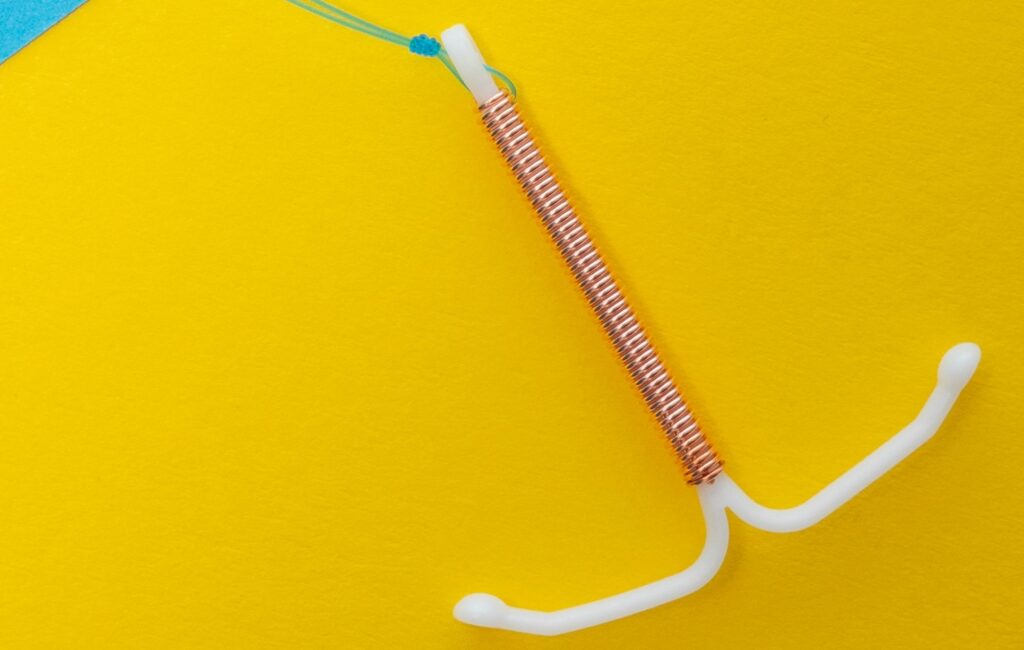
Body + Mind is reader-supported. We may earn an affiliate commission when you buy through some of the links on our site.
With ongoing developments in medical research, birth control options are rapidly evolving to fit the needs of consumers. In today’s world, birth control is available in different forms to appeal to consumers’ lifestyles and habits, creating an easier way to effectively protect against pregnancies, STDs, and STIs.
A more extensive birth control selection is exclusively available to women. Having more preventative options means more side effects to consider. When thinking about the best birth control option for you, it is essential to consider potential side effects.

Men have two external birth control methods to choose from when engaging in sexual activity. In contrast, women have a variety of long-lasting options that involve little to no effort. As you consider types of birth control, you must know the available options and what each offers, including price, over-the-counter options and preventive measures.
If you don’t know where to start, that’s okay! The types of birth control options available to women include:
Available as an in-office procedure, the IUD is a small piece of plastic a doctor places in the uterus. This method is available in two options:
Whatever option you choose with your doctor depends on how long the implant is effective. This birth control option does not prevent STDs and STIs.
Most birth control options consist of hormonal methods that your doctor prescribes. Each option has a different lifespan. Some hormonal birth control options include:
Like the IUD, all hormonal options do not protect against diseases or infections.Someone who opts for hormonal birth control, such as a shot or implant, will need a doctor to administer the birth control, while others can be up to the user. Hormonal birth control methods can help balance hormone production and ease reproductive challenges, such as polycystic ovarian syndrome.
Barrier methods are the one birth control option that prevents pregnancy, STDs and STIs! Some options include:
These options are affordable and are available over the counter.
In the event that your birth control option fails or you forget a dose, emergency contraception is available. Two options include:
The morning-after pill is available over-the-counter while a doctor needs to insert the IUD in the uterus. Both of these options have different timelines for effectiveness!
When considering these different birth control options, remember that you do not have to pick one option exclusively. Some methods, when practiced together, can increase your protection!
Birth control side effects vary depending on the method you choose. With birth control comes short-term and long-term side effects. Though some side effects are consistent with every option, here are the main short-term side effects of popular birth control methods:

The side effects of an IUD vary depending on if you opt for the copper or hormonal option. For example with the copper IUD, heavier periods commonly occur with more cramping. However, both options include the following side effects:
When these side effects occur, over-the-counter medicine such as ibuprofen can help these effects subside.
With hormonal birth control, the side effects are similar regardless of which option you choose. Some short-term side effects of this option include:
Barrier birth control methods have few potential side effects, mainly focusing on the internal options. With external barrier options, the only side effect is a potential reaction to latex for those who are allergic. However, some side effects of internal options include:
This birth control option comes with the least amount of side effects that have quick resolve once the method is no longer in use.
Emergency contraception side effects depend on whether you decide to purchase the over-the-counter pill or schedule a copper IUD procedure. If you decide to use the copper IUD as an emergency measure, the side effects are the same in the IUD Side Effects section. Taking the pill form, better known as the morning-after pill, includes these main side effects:
If side effects continue for over three days, calling your healthcare provider to schedule a visit is best. Emergency contraception is just that, for emergencies. It is best to use when your other birth control option fails.
Though short-term side effects are important to note when making the best decision on which birth control option is right for you, many of these options also include long-term side effects. The main side effects of using an IUD, hormonal and emergency contraception are similar. Long-term side effects include:
It is important to remember that birth control is not for long-term use. If you are looking for a permanent birth control solution, talk to your doctor about available options.

Deciding on the best birth control option for you can be a complex and intimidating experience. Side effects can scare you away into picking an option that will help protect your sexual health. Though these effects can be fear-inducing, it is vital to remember that side effects are potential, not definite. When making the best birth control option for you, side effects should be a factor, but not the only factor.
Birth control side effects are an essential piece of information to know, especially when it comes to your health and well-being. If you are unsure which option is best for you, talk to your doctor!
Your email address will only be used to send you our newsletter, and at any time you may unsubscribe. For more information, see our Privacy Policy.